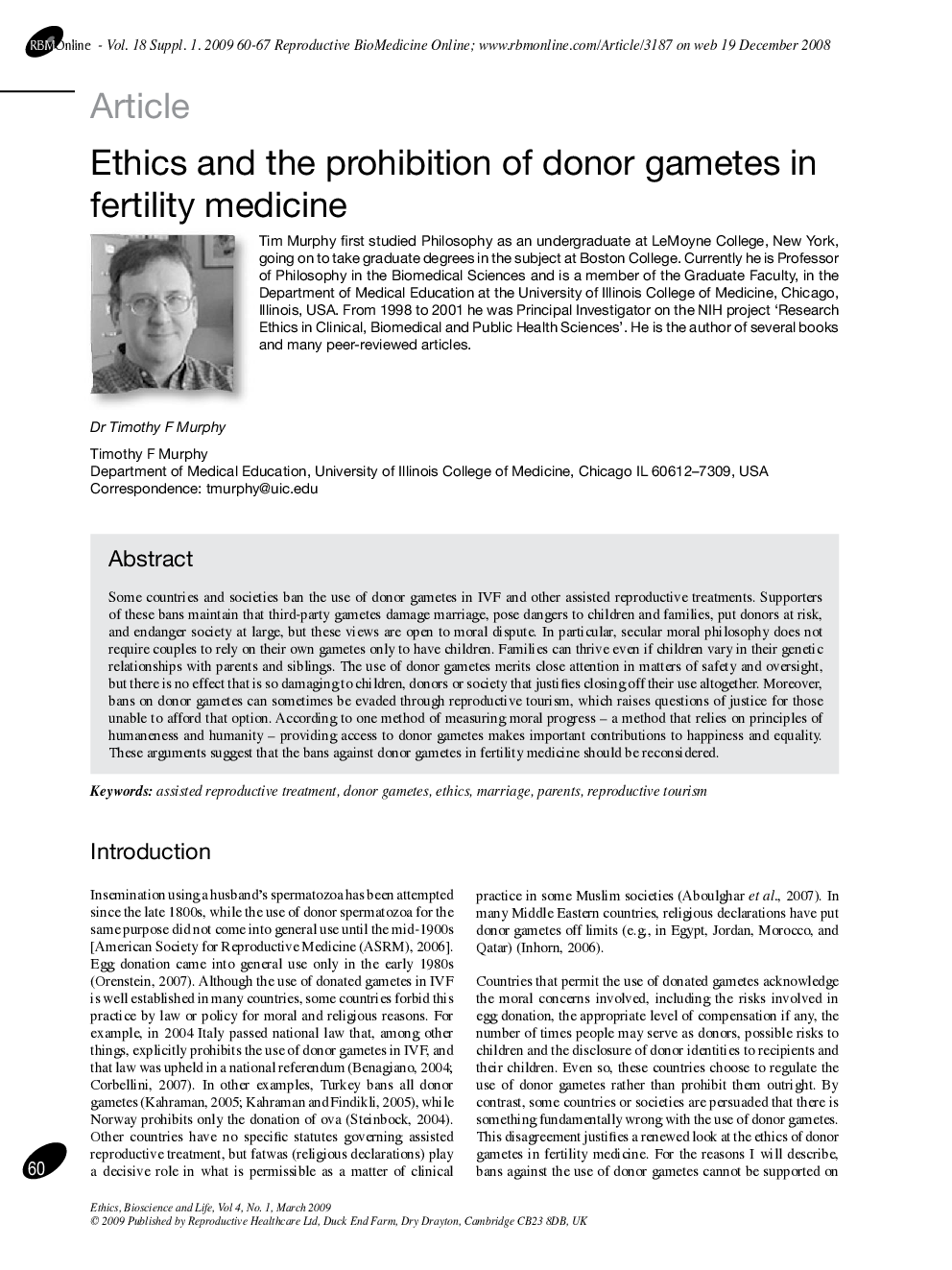| Article ID | Journal | Published Year | Pages | File Type |
|---|---|---|---|---|
| 3972340 | Reproductive BioMedicine Online | 2009 | 8 Pages |
Some countries and societies ban the use of donor gametes in IVF and other assisted reproductive treatments. Supporters of these bans maintain that third-party gametes damage marriage, pose dangers to children and families, put donors at risk, and endanger society at large, but these views are open to moral dispute. In particular, secular moral philosophy does not require couples to rely on their own gametes only to have children. Families can thrive even if children vary in their genetic relationships with parents and siblings. The use of donor gametes merits close attention in matters of safety and oversight, but there is no effect that is so damaging to children, donors or society that justifies closing off their use altogether. Moreover, bans on donor gametes can sometimes be evaded through reproductive tourism, which raises questions of justice for those unable to afford that option. According to one method of measuring moral progress – a method that relies on principles of humaneness and humanity – providing access to donor gametes makes important contributions to happiness and equality. These arguments suggest that the bans against donor gametes in fertility medicine should be reconsidered.
